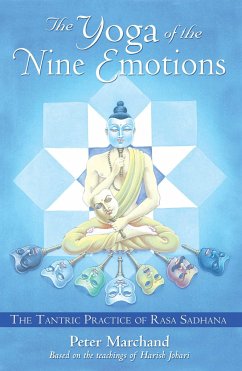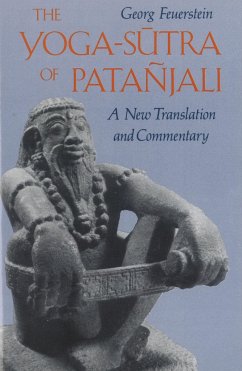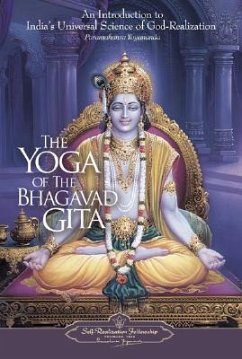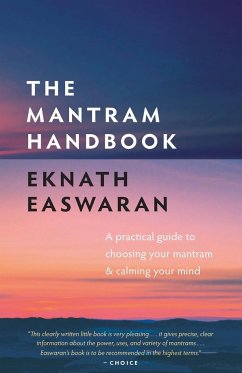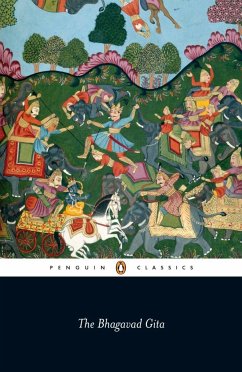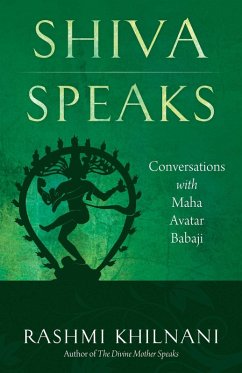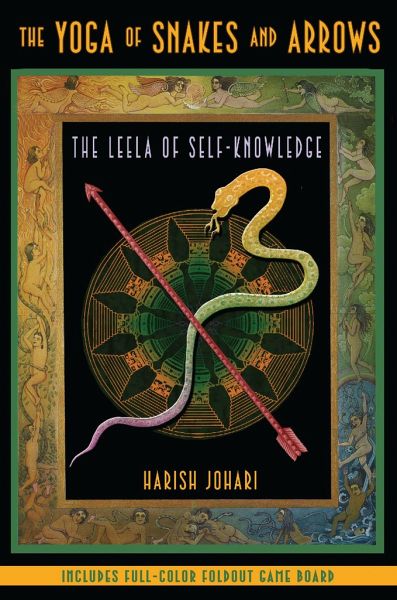
The Yoga of Snakes and Arrows
The Leela of Self-Knowledge
Versandkostenfrei!
Liefertermin unbestimmt
15,99 €
inkl. MwSt.
RELIGION / PERSONAL GROWTHPLAY THE ORIGINAL GAME OF SELF-KNOWLEDGE USING THE ENCLOSED FULL-COLOR FOLDOUT GAME BOARD Just as the origins of modern playing cards are rooted in the tarot, the popular children's game of Chutes and Ladders is derived from the ancient Hindu game Leela, or Snakes and Arrows, which charts the ups and downs of the soul's path toward reunion with the Infinite. Snakes and Arrows was designed by the seers and saints of India as a tool for understanding the relationship of the individual self to the Absolute Self. For thousands of years the 72 spaces on this game board hav...
RELIGION / PERSONAL GROWTHPLAY THE ORIGINAL GAME OF SELF-KNOWLEDGE USING THE ENCLOSED FULL-COLOR FOLDOUT GAME BOARD Just as the origins of modern playing cards are rooted in the tarot, the popular children's game of Chutes and Ladders is derived from the ancient Hindu game Leela, or Snakes and Arrows, which charts the ups and downs of the soul's path toward reunion with the Infinite. Snakes and Arrows was designed by the seers and saints of India as a tool for understanding the relationship of the individual self to the Absolute Self. For thousands of years the 72 spaces on this game board have enabled players to chart the paths that represent the course of their lives. Each space represents a virtue or a vice, an aspect of consciousness, or a plane of reality and is accompanied by a commentary explaining its meaning. The player's progress on the board is dictated by the fall of a die corresponding to the forces of karma. Repeated encounters with the snakes and arrows on the board reveal the full meaning of the commentaries and can give shape to habitual patterns of the player, resulting in greater self-understanding and even a gradual detachment from the ego's delusions.The Yoga of Snakes and Arrows assists the seeker through the stages and trials of self-development, mirroring both the obstacles of karma and the rewards of self-obtained insight. There is really only one game in life and that is Leela, the game of self-knowledge and the universal play of cosmic energies. Harish Johari (1934-1999) was a respected teacher, artist, and composer who studied with many of the great saints of India. He worked for decades to introduce the culture of his homeland to the West and authored twelve books on Eastern spirituality, including Breath, Mind, and Consciousness; Chakras; Ayurvedic Healing Cuisine; The Healing Power of Gemstones; Numerology; and Tools for Tantra.





